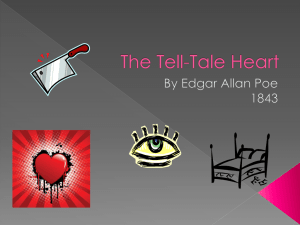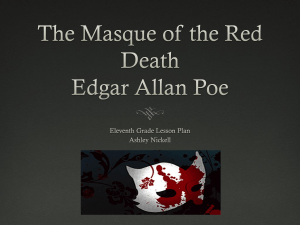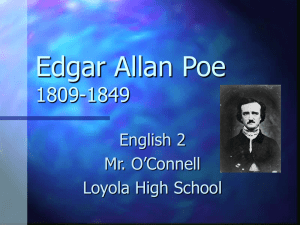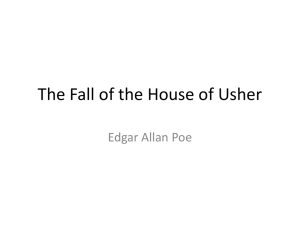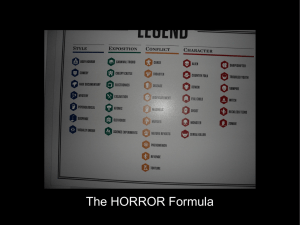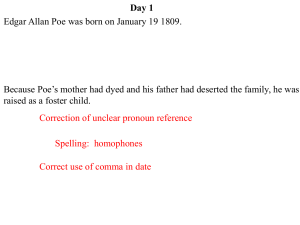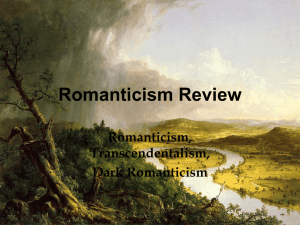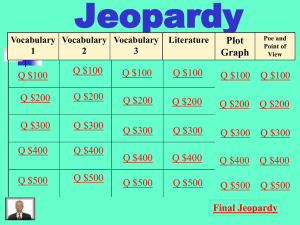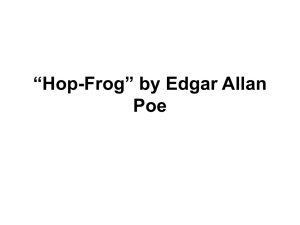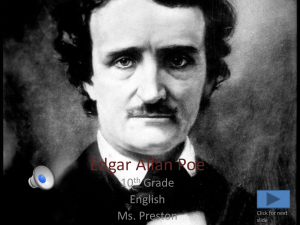Poe`s biography & The Black Cat - mr-marchbank
advertisement
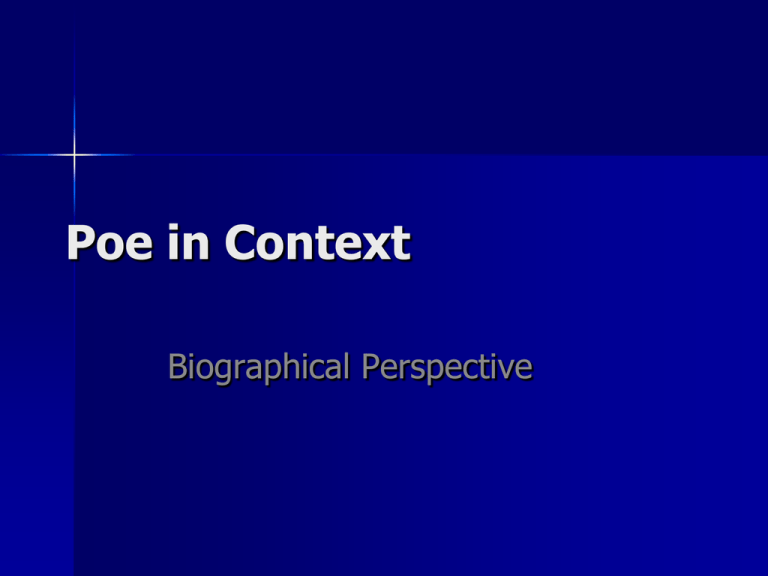
Poe in Context Biographical Perspective Poe’s Biography Born January 19, 1809, in Boston After being orphaned at age two, he was taken into the home of a childless couple–John Allan, a successful businessman in Richmond, Va., and his wife. – Allan was believed to be Poe’s godfather. At age six, Poe went to England with the Allans and was enrolled in school. After he returned with the Allans to the U.S. in 1820, he studied at private schools, then attended the University of Virginia and the U.S. Military Academy, but did not complete studies at either school. After beginning his literary career as a poet and prose writer, he married his young cousin, Virginia Clemm. He worked for several magazines and joined the staff of the New York Mirror newspaper in 1844. – All the while, he was battling a drinking problem. Poe’s Biography After the Mirror published his poem “The Raven” in January 1845, Poe achieved national and international fame. Besides pioneering the development of the short story, Poe invented the format for the detective story as we know it today. He also was an outstanding literary critic. Despite the acclaim he received, he was never really happy because of his drinking and the deaths of several people close to him, including his wife in 1847. He frequently had trouble paying his debts. It is believed that heavy drinking was a contributing cause of his death in Baltimore on October 7, 1849. Poe’s Definition of a Short Story Poe defined a short story as a narrative prose work that: 1. Short enough to be read in one sitting 2. Takes place in one location on a single day – (or even in a few hours) 3. Centers on a single line of action 4. Maintains a single mood- Every word or phrase should contribute to the theme and the mood. Literary Elements Allusion – A reference in a literary work to a person, place, or thing in history or another work of literature. Allusions are often indirect or brief references to well-known characters or events. Symbolism – A symbol is a word or object that stands for another word or object. The object or word can be seen with the eye or not visible. Anaphora – Anaphora is a figure of speech in which a word or phrase is repeated at the beginning of a clause or another group of words. Poe in Context Poe and Journalism Poe and the Horror Story Poe and the Detective Story The Dimension of Style Poe and Journalism Poe came to understand the audience who read his work. – He aimed his work, “not above the popular, not below the critical taste.” Poe influenced Baudelaire and Dostoyevsky, through his depictions of the human psyche. Poe’s life was as tormented as the narrators’ from his stories. Poe and the Horror Story Poe’s stories are more than merely filled with terror. – Poe’s stories are psychological studies of guilt, obsession, and compulsion. The most horrifying aspects of Poe’s stories are usually not the events, but the bizarre behavior and thinking of the narrators. Poe and the Detective Story Father of modern detective fiction – His crime stories usually give primacy to the solution, not the crime. Poe is interested in the motivations for confession. – His stories seem more focused on the confession than the crime. The Dimension of Style Sophisticated vocabulary Complicated sentence structure Repetitions of words and phrases – Use of anaphora – Creates/ develops intensity – Builds suspense “The Black Cat” (Literary Elements) What allusion lies at the center of the story? (Title character?) – How symbolic? Identify uses of anaphora in the story. Why is it used? What does it enhance in the story? “The Black Cat” (Experience) Explain your response to the various shocking revelations of the narrator throughout the story, particularly the treatment of the black cat and the murder of his wife. How do you respond to the narrator’s paroxysms of rage, his violent outburst of anger? To what extent, if at all, do you sympathize with his behavior? To what extent can you understand why he behaves as he does? “The Black Cat” (Interpretation) Identify 2 ironic elements of the story and explain their significance. Identify two symbolic elements of the story and explain their significance. Explain why the narrator kills his wife and why he appears to have no remorse for doing so. “The Black Cat” (Interpretation) Do you accept the narrator’s blaming of the cat for his actions and for his fate? Why or why not? Why and how does the narrator get caught? What psychological explanation might be offered for how his actions come to light? “The Black Cat” (Evaluation) How well made, how successful a story is “The Black Cat” as a horror story and as a revelation of character?
